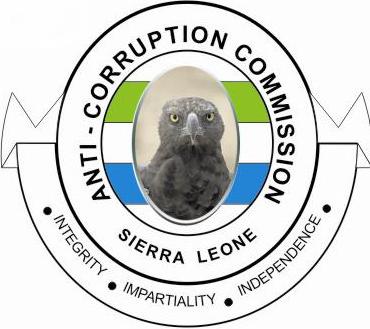By: Martina George, Communications Officer, ACC
The Anti-Corruption Commission (ACC), through its Prevention Department, has engaged private sector institutions to discuss ways to collaborate and consult on ways to combat and prevent corruption in the sector. The meeting, which was also attended by representatives from public sector enterprises, took place on Wednesday, 23rd August, 2023, at the Conference Room of the Commission’s Integrity House, Tower Hill, Freetown.
The Deputy Commissioner of ACC, Augustine Foday Ngobie, on behalf of the Commissioner, welcomed representatives of the private sector and highlighted some of the steps the Commission has taken in recent years in the fight against corruption. He cited Section 7(g) of the Anti-Corruption Act 2008 as amended in 2019, which states that one of the functions of the Commission is ‘to advise and assist any person, authority, public body or private sector institution on changes in practice or procedures compatible with the effective discharge of duties of such persons, authorities, public bodies or private sector institutions that the Commission thinks necessary to reduce the likelihood of the occurrence of corrupt practice’.
Mr. Ngobie said that, as state actors “our actions or inactions have greater propensity to encourage or control corruption in the area we do our work.” He therefore emphasized the roles of the private sector in the fight against corruption. He concluded by encouraging the various institutions to cooperate with the Prevention Department of the Commission, and initiate ideas that will foster mutual cooperation in eradicating the menace of corruption.
During the engagement, the discussions centered on the importance of transparency and accountability in the private sector, as well as the need for collaboration between different stakeholders to effectively fight corruption.
Deputy Director of the Prevention Department, Samuel Muti Marah Esq, said that, moving forward, corruption prevention mechanism in the private sector should commit to working together to develop strategies and initiatives to tackle the scourge in the sector. This includes exploring the possibility of establishing a Taskforce that will increase the role of the private sector in monitoring and reporting corruption issues.
Bailor A.S Kamara, Monitoring, Research and Project Officer of the Independent Media Commission (IMC), suggested that the private sector should come up with a concept paper on how to collaborate with the ACC.
Today’s engagement with private sector stakeholders represents a significant step forward in the fight against corruption in Sierra Leone and highlights the importance of collaboration and partnership in tackling the scourge.




